Buying into the Electrified Vehicle market, which is growing very slowly but assuredly, has raised a number of issues. Whether your vehicle choice is hybrid or full EV, its real term ‘clean’ status can only be so, if you are also recharging its battery pack with renewable electricity, which is obtained by wind, or solar power, at this time. Electricity obtained from a fossil-fuel-fired power station, whether by oil, coal, or gas, is only moving the blame a little further along the line.
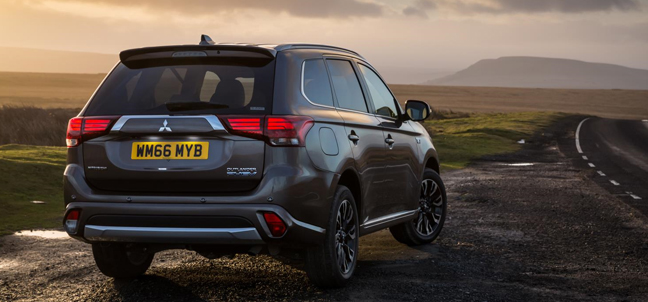
While many suppliers of hybrid and EV motor vehicles may have been provided with an ‘incentive’ card, which would allow them pre-paid access (in some cases, strictly time limited) to the public charging network, somebody will still be footing the bill. Electricity is not free, neither is it that inexpensive; yes, it is great value but, just look at your domestic fuel bill for the answer.
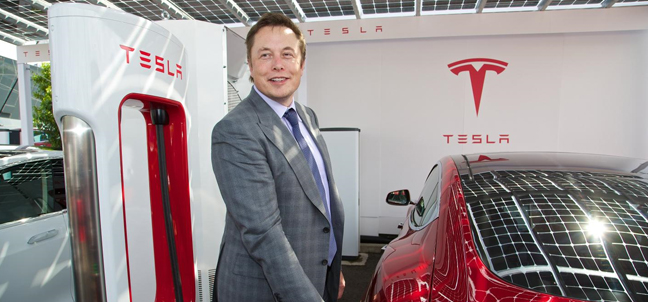
While EVs may well be the future of low-emission transportation, hybrids are proving to provide an increasingly popular compromise. Recent government research found that nearly three quarters of British motorists (74%) claimed that initial high costs of electric or hybrid vehicles stop them in their tracks. More than half (52%) felt that re-charging the vehicle is a turn-off.
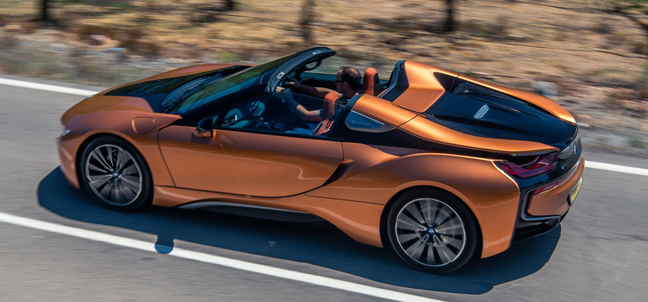
Private registration-plates company, Click4reg.co.uk, collated data for current hybrid vehicles using Zap-Map’s ‘Public Charging Calculator’ tool and analysed which cars cost the least to power-up at public charge points. The findings were amazing, with the least expensive car to recharge being the very expensive BMW i8 (£1.25 to add 59 miles), which also has the fastest recharge time of 1.4 hours at 3kW public charging points.
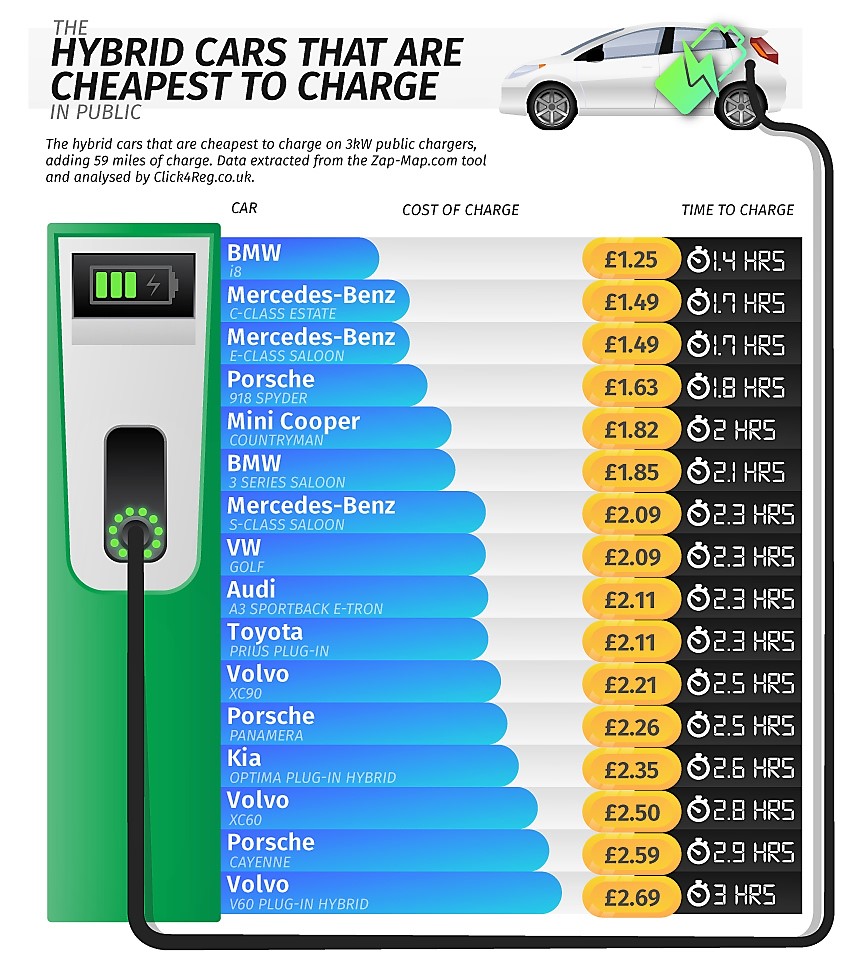
The i8 is followed by both the Mercedes-Benz C-Class Estate and the E-Class Saloon (£1.49 to ‘refuel’, around 1.7 hours for 59 miles). Selling for anything between £650,000 and £1m, the Porsche 918 Spyder provides a shock (£1.63, 1.8 hours). Meanwhile, the Mini Cooper Countryman (£1.82, 2 hours) is followed by the BMW 3-Series saloon (£1.85, 2.1 hours), all for a 59 miles range.
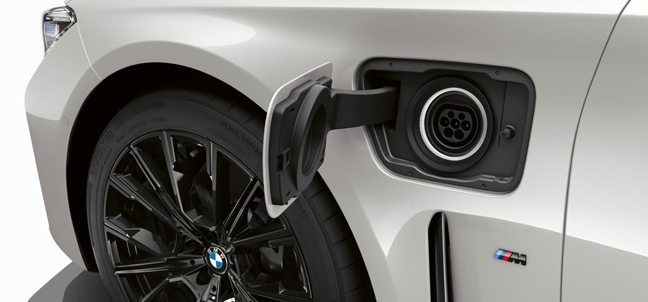
Click4reg.co.uk also revealed the notable dual-energy (hybrid) cars that ranked among the cheapest vehicles to ‘re-juice’ at public charging points: VW Golf (£2.09, 2.3 hours), Toyota Prius Plug-In (£2.11, 2.3 hours) and the Kia Optima Plug-In Hybrid (£2.35, 2.6 hours). Unsurprisingly, fully electric vehicles are more expensive to charge, with the Tesla costing between £13-18 per charge, dependent on model, and the Hyundai KONA Electric costing £9.41 for an effective charge that took a whopping 10.5 hours.
Yet, the company discovered that the following fully electric vehicles all cost under £5 to charge at 3kW public charging points (longer charging times than hybrid vehicles).